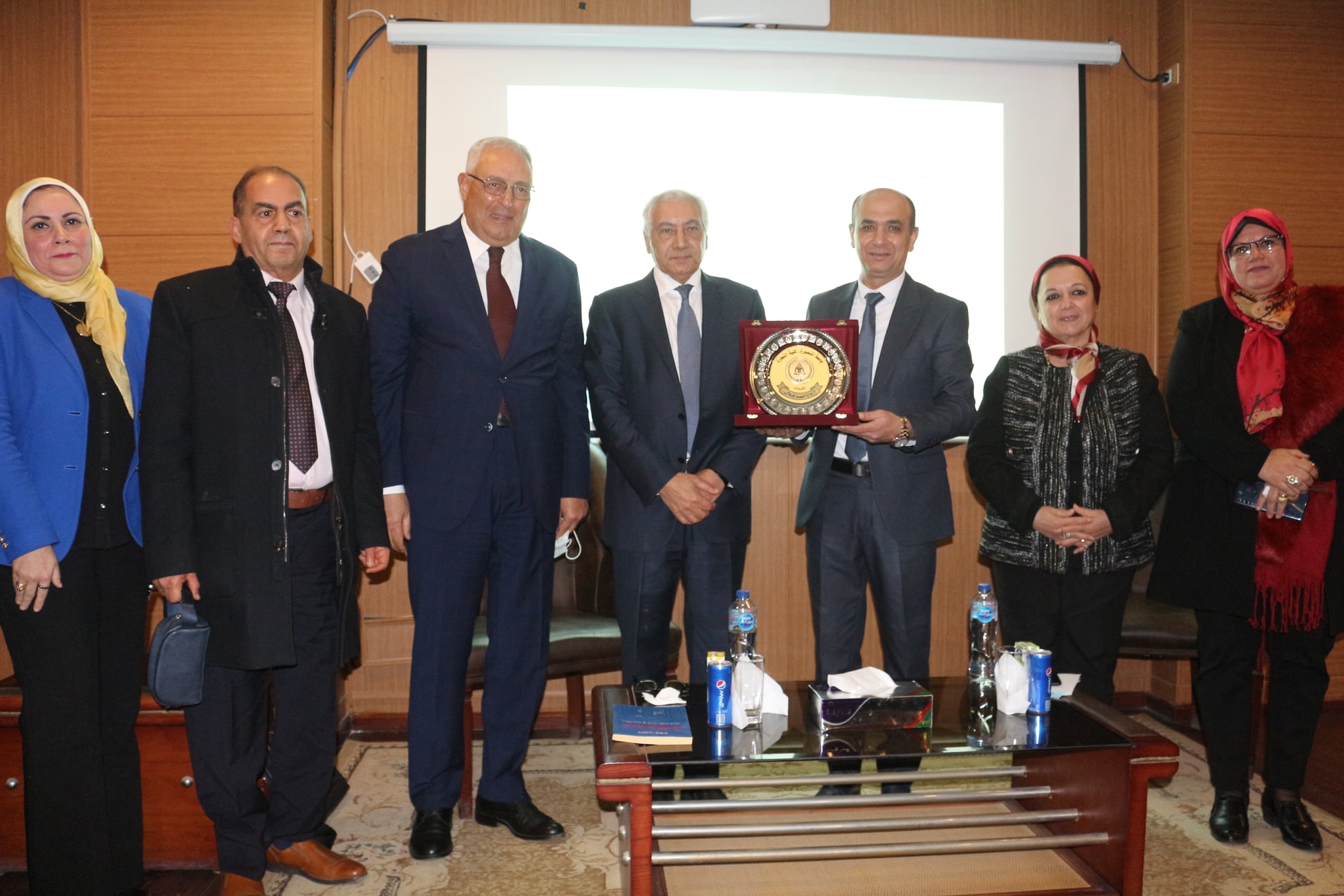 Within the framework of the celebration of the university’s golden jubilee, Faculty of Commerce organized on Sunday, March 20, 2022, a session under the title of “Sustainable Development and the Secrets of countries development” in the conference hall
Within the framework of the celebration of the university’s golden jubilee, Faculty of Commerce organized on Sunday, March 20, 2022, a session under the title of “Sustainable Development and the Secrets of countries development” in the conference hall
Lecture in the session Prof. Ahmed Galal - Professor of Economics and former Minister of Finance. In the presence of Prof. Ahmed Gamal El-Din Moussa - former President of Mansoura University, Prof. Magda Nasr - former Vice President for Graduate Studies and Research, Prof. Mohamed Ghoneim - Professor at the University's Urology and Kidney Surgery Center, Prof. Tarek Ghalwash - Dean of the Faculty of Commerce, Prof. Samah Tarek Hafez - Vice Dean for Community Service and Environmental Development, Prof. Mona El-Dakrouri - Vice Dean for Graduate Studies and Research affairs, Prof. Mona Sayed - Vice Dean for Education and Student Affairs, Dr. Hana El-Gohary - Activities Coordinator, a number of faculty and students of the faculty, the journalist writer/ Hazem Nasr - editor-in-chief of Akhbar Al-Youm, the journalist writer/ Osama Saraya - former editor-in-chief of Al-Ahram.
Prof. Tarek Ghalwash welcomed the attendance and the presence of Prof. Ahmed Galal in the premises of Mansoura University. He pointed out that constantly changing sources of wealth from time to time necessitates searching for an increase in these sources to improve human life. He added that this session helps in identifying the reasons for the progress of countries and the mechanisms for achieving sustainable development. Prof. Ahmed Galal emphasized the multiplicity of theories explaining the reasons for the progress or backwardness of nations. He noted that the reason, according to these theories, may be due to the factors of geography, culture, education, technology, industrialization, rational economic policies and the political system.
He believes that the political system is responsible for the progress or backwardness of countries because politicians are the ones who set priorities and set policies that result in the results we see on the ground. This was evidenced by the effect of the nature of the closed political system, as in North Korea, and the open one, as in South Korea, on the investment climate, social spending, and economic growth. He stated that economic reform is related to the allocation and efficiency of resource use, and that the institutional framework is a general guide for the behavior of participants in economic activity. He added that the social contract is the framework that governs the relationship of rulers with peoples. He stressed the need to achieve social justice as a moral necessity and a means of political stability in any society.
He believes that the reform program with the International Monetary Fund is not sufficient to advance the Egyptian economy, because the improvement of macroeconomic indicators, financially and monetarily, is not sufficient to judge economic performance. He stated that social justice does not stop at social protection, but rather requires activating the principle of equal opportunities.
http://comfac.mans.edu.eg/en/colledge-media/latest-news-en/708-sustainable-development-and-the-secrets-of-countries-development#sigProId1a87ba277b


